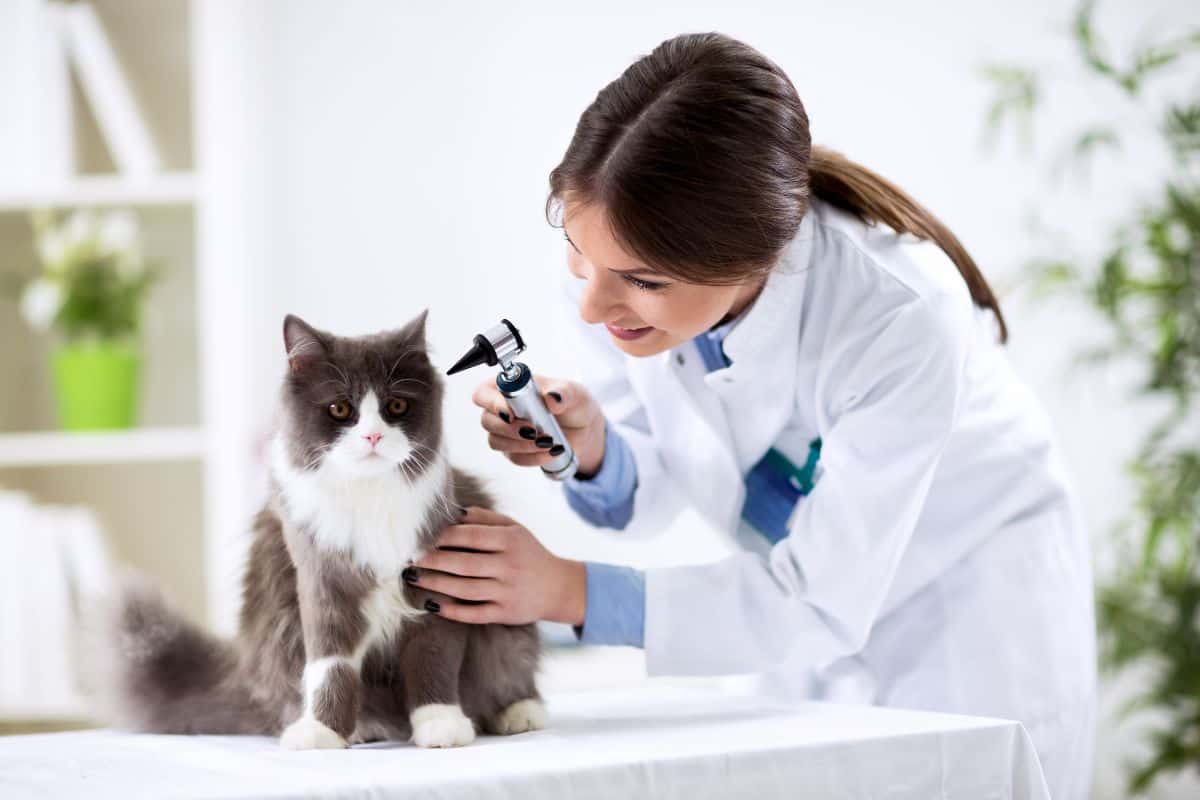What to Anticipate During a Detailed Pet Health Checkup at Your Local Vet
What to Anticipate During a Detailed Pet Health Checkup at Your Local Vet
Blog Article
Inoculation Standards From Your Relied On Veterinarian
Vaccination standards given by your relied on veterinarian play an essential function in securing your animal's wellness and health. Core injections are essential for all pets, while non-core vaccinations can be tailored to environmental exposures and particular way of lives. Understanding the subtleties of inoculation schedules, which start as very early as six to 8 weeks, is crucial for ideal security. Furthermore, attending to typical misunderstandings bordering vaccinations can even more boost animal proprietors' self-confidence in these safety nets. As we discover these vital aspects, it ends up being significantly clear why routine appointments with your veterinarian are crucial for educated decision-making.

Importance of Inoculations
Vaccinations play a critical duty in securing pets versus a series of avoidable conditions. By stimulating the immune system to acknowledge and battle details pathogens, injections considerably minimize the incidence of contagious conditions that can impact an animal's health and durability. Not only do inoculations secure private animals, however they additionally add to herd immunity, thus lowering the total occurrence of illness in the pet dog populace.
Timely inoculations assist to reduce the spread of diseases such as rabies, parvovirus, and distemper, which can have serious consequences for both humans and animals. Furthermore, inoculations are frequently a demand for boarding facilities, brushing services, and dog parks, making them crucial for those that want to mingle their pet dogs.

Core Vaccinations for Pet Dogs
While the details inoculation requirements of pet dogs can differ based upon specific elements, core vaccinations are globally suggested to protect versus one of the most typical and serious conditions (Pet Vaccinations). Core vaccines are those considered crucial for all pet dogs, no matter their way of life or geographic area, as they safeguard versus potentially fatal and highly infectious illnesses
For pet dogs, the core vaccines include those for canine distemper, parvovirus, adenovirus (hepatitis), and rabies. Canine distemper is a viral disease that affects the respiratory, gastrointestinal, and nerves. Parvovirus is understood for creating serious stomach ailment, particularly in pups. Adenovirus can lead to liver illness, while rabies is a zoonotic illness that positions a danger to both family pets and people.
In pet cats, core vaccinations include feline panleukopenia, feline calicivirus, feline herpesvirus (rhinotracheitis), and rabies. Feline panleukopenia is a very transmittable viral disease that affects the immune system and intestinal tracts. Calicivirus and herpesvirus are significant contributors to top respiratory infections in pet cats, while rabies stays an important issue for public health.
Speak with your vet to guarantee your pet dogs get their core inoculations on timetable.
Non-Core Vaccines Explained
Non-core vaccines are tailored to attend to specific threats related to a family pet's atmosphere, way of living, and direct exposure to visit the website particular conditions. Unlike core injections, which are generally suggested for all family pets, non-core vaccines are considered based on individual situations. These vaccines are especially essential for animals that may experience special microorganisms as a result of their geographical area, traveling habits, or tasks.
Examples of non-core vaccinations include those for Bordetella bronchiseptica, which is connected to kennel cough, and Lyme disease, created by ticks. Pets that often connect with various other animals, such as those in boarding centers, dog parks, or brushing environments, might gain from Bordetella vaccination. If you live in an area where Lyme disease is prevalent, immunizing against this illness can be a sensible choice for outdoor-loving pet dogs.
Various other non-core vaccines may include those for leptospirosis, canine flu, and feline leukemia, depending upon the details risk aspects existing. It is necessary to have a complete conversation with your veterinarian regarding your family pet's way of living and the potential requirement for these vaccinations, ensuring a tailored vaccination technique that ideal safeguards your fuzzy good friend.
Vaccination Arrange Introduction

As pets develop, it is important to comply with the suggested booster inoculations. Vet Enterprise. For grown-up pets, core vaccinations are generally offered each to three years, depending upon the certain vaccination and local policies. Non-core vaccines may be encouraged based upon way of living factors and regional condition occurrence, demanding a tailored technique
Routine vet examinations are crucial for updating vaccination schedules. Your veterinarian can provide guidance on the most appropriate immunizations for your pet, considering age, health and wellness condition, and ecological dangers. By remaining aggressive and educated, pet dog owners can ensure their furry buddies receive timely and effective inoculations, thus safeguarding their health and well-being throughout their lives.
Common Misconceptions Regarding Injections
Misconceptions concerning pet dog inoculations can lead to complication and hesitation among animal owners regarding the immunization procedure. One common myth is that vaccines are unneeded for indoor pets. While it holds true that indoor animals encounter reduced risks, they are not completely unsusceptible to illness, as microorganisms can be introduced via different means, consisting of human garments and other pet dogs.
An additional mistaken belief is that vaccinations can create the illness they aim to avoid. In truth, most vaccinations contain suspended official source or undermined virus, which can not create illness in healthy pets. Some animal owners likewise think that their family pets ought to not be immunized if they are currently healthy and balanced; nevertheless, inoculations are an aggressive procedure that helps protect against the onset of illness.
Furthermore, many family pet proprietors fear that injections will certainly result in lasting health issues. While negative effects can happen, they are usually light and temporary. The benefits of vaccination-- securing pet dogs from potentially lethal conditions-- far outweigh the dangers. Comprehending these usual misconceptions is essential for accountable pet dog possession and ensuring the health and wellness and safety and security of your hairy companions. Always consult your veterinarian for accurate information customized to your pet dog's particular demands.
Conclusion
In summary, adherence to inoculation guidelines is critical for making sure the health and durability of pets. Resolving common misconceptions surrounding inoculations better strengthens the value of educated decision-making in pet treatment.
Not just do inoculations shield private animals, but they additionally add to herd resistance, thereby decreasing the overall frequency of diseases in the pet dog population.
Misconceptions about family pet inoculations can lead to complication and hesitation among family pet proprietors pertaining to the immunization procedure. While it's true that indoor animals encounter lower threats, they are not totally immune to illness, as microorganisms can be introduced with numerous means, consisting of human clothes and other family pets.
Some pet proprietors likewise think that their pets ought to not be vaccinated if they are already healthy and balanced; however, vaccinations are a positive step that aids prevent the start of health problem.
The benefits of vaccination-- shielding animals from possibly serious illness-- far outweigh the threats.
Report this page